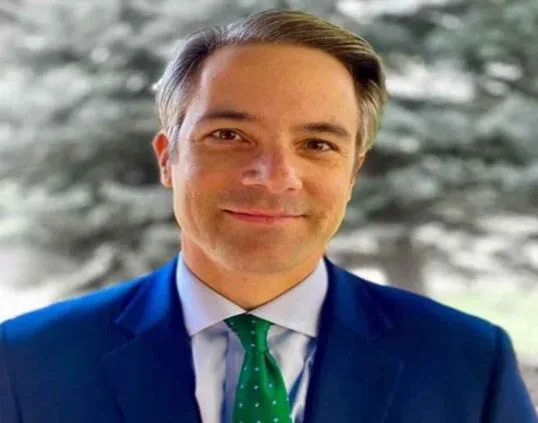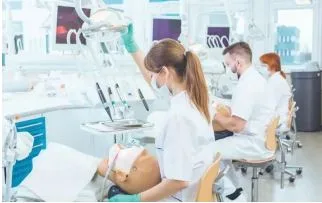Whole Body Donation Across the Country: What to Know About Regional Programs
Whole body donation to science represents one of the most meaningful contributions an individual can make to medical education and research. The availability, processes, and options for body donation, however, vary significantly across different regions of the United States. Understanding these regional differences helps potential donors make informed decisions and ensures their final wishes can be successfully fulfilled. For residents of Nevada, Rhode Island, Florida, and Arizona, distinct opportunities and considerations shape the body donation landscape in each state.
The National Landscape of Body Donation
Across the United States, body donation programs operate through medical schools, research universities, and private anatomical gift organizations. Most states have at least one medical school with an active body donation program, though some regions face greater demand than supply, while others struggle to meet their educational needs. Geographic factors, population density, cultural attitudes toward donation, and the presence of medical institutions all influence regional body donation dynamics.
Transportation logistics play a crucial role in body donation feasibility. Most programs prefer donors within their immediate state or region, as bodies must be transported quickly after death and transportation costs increase with distance. This geographic limitation makes understanding local and regional options particularly important for potential donors.
Body Donation in Nevada
Nevada presents unique challenges and opportunities, primarily for body donation after death las vegas. The state has only two medical schools—the University of Nevada, Las Vegas (UNLV) Kirk Kerkorian School of Medicine, which opened relatively recently in 2017, and the University of Nevada, Reno School of Medicine. Both institutions operate body donation programs serving their educational missions.
The UNLV program accepts donations primarily from Clark County and surrounding areas, reflecting transportation logistics in a geographically large but sparsely populated state. Las Vegas’s significant population provides a substantial potential donor pool, though the relatively new medical school means the program is still developing compared to more established institutions nationwide.
Nevada residents, particularly those in rural areas distant from Las Vegas or Reno, may face challenges with in-state donation due to transportation distances. However, several national private body donation organizations operate in Nevada, providing alternatives for residents throughout the state. These organizations often have broader geographic reach and may accept donors from areas where medical school programs cannot efficiently operate.
Nevada’s transient population—with many retirees relocating to the state—means potential donors should carefully consider whether they plan to remain in Nevada long-term when registering for body donation programs. Pre-registration with Nevada programs while maintaining ties to other states may require updating donation plans if circumstances change.
Body Donation in Rhode Island
Rhode Island, despite being the nation’s smallest state, hosts Brown University’s Warren Alpert Medical School, which maintains an established and respected body donation program. The program’s long history—Brown’s medical school dates to 1811—means well-developed processes and strong community relationships support body donation in the state.
Rhode Island’s compact geography creates advantages for body donation. The entire state lies within easy transportation distance of Providence, where Brown’s medical school is located. This proximity means Rhode Island residents face fewer logistical obstacles than donors in geographically larger states. The program can efficiently serve donors throughout Rhode Island and nearby parts of Massachusetts and Connecticut.
The state’s small population and single medical school mean donation capacity is more limited than in larger states with multiple medical institutions. However, Brown’s program has historically met its needs through dedicated donors and strong community support for medical education. Rhode Island’s cultural emphasis on education and community service contributes to positive attitudes toward body donation.
New England’s aging population means increasing numbers of potential donors, which Rhode Island programs must balance against educational needs. Potential donors should register early and maintain updated contact information to ensure smooth processes when the time comes.
Body Donation in Florida
Florida represents one of the nation’s most active body donation regions, driven by several factors. The state hosts multiple medical schools, including the University of Florida College of Medicine, Florida State University College of Medicine, University of Miami Miller School of Medicine, University of South Florida Morsani College of Medicine, and several newer institutions. This concentration of medical schools creates robust demand for body donations across the state.
Florida’s large retirement population means many residents consider end-of-life planning, including body donation. The state’s high cremation rate and generally progressive attitudes toward alternative death care options contribute to strong body donation participation. Multiple programs throughout the state provide options for residents in different regions—North Florida residents might donate to programs in Gainesville or Tallahassee, while South Florida residents can access programs in Miami or surrounding areas.
The state’s size presents both opportunities and challenges. While multiple programs exist, donors should register with programs in their region to ensure transportation feasibility. A donor in the Florida Panhandle might face obstacles donating to a Miami program due to distance, though Florida’s relatively dense medical education infrastructure means most residents have reasonable access to nearby programs.
Florida also hosts several private body donation organizations with national reach. These companies provide additional options, particularly for residents in areas less convenient to medical school programs. However, potential donors should carefully research private organizations, understanding how bodies will be used and ensuring the organization’s practices align with their wishes.
Body Donation in Arizona
Arizona’s body donation landscape centers primarily on two major medical institutions: the University of Arizona College of Medicine with campuses in Tucson and Phoenix, and the relatively newer Creighton University School of Medicine at St. Joseph’s Hospital in Phoenix. Both programs actively seek body donations to support their educational missions.
Arizona’s population concentration in the Phoenix and Tucson metropolitan areas simplifies logistics for most residents. The majority of Arizonans live within reasonable distance of one or both medical schools, making donation logistically feasible. The state’s significant retirement population, particularly in Phoenix and surrounding communities, creates strong awareness of body donation options.
The Arizona programs emphasize dignity and respect in their handling of donations, conducting annual memorial services that honor donors and provide closure for families. These ceremonies reflect the profound gratitude medical students feel toward donors whose generosity makes their education possible.
Arizona’s geographic size and rural populations mean some residents, particularly in northern Arizona or remote areas, may face transportation challenges. However, both medical school programs work to accommodate donors throughout the state when feasible. Alternative options through private organizations provide backup possibilities for residents in remote areas.
The state’s desert climate presents unique preservation considerations. Programs must transport bodies quickly due to heat, making immediate notification after death particularly critical for Arizona donors. Families should ensure they have 24-hour contact information readily available and understand the time-sensitive nature of donation in Arizona’s climate.
Making Regional Decisions
Regardless of location, successful body donation requires careful planning, clear family communication, and understanding of local program requirements. Potential donors in Nevada, Rhode Island, Florida, and Arizona should research available programs in their specific areas, compare acceptance criteria and procedures, and register with programs best suited to their circumstances and geographic location.
Regional differences in body donation reflect the diverse landscape of American medical education, but the underlying purpose remains constant—advancing medical knowledge and training compassionate, skilled physicians who will serve future generations.



